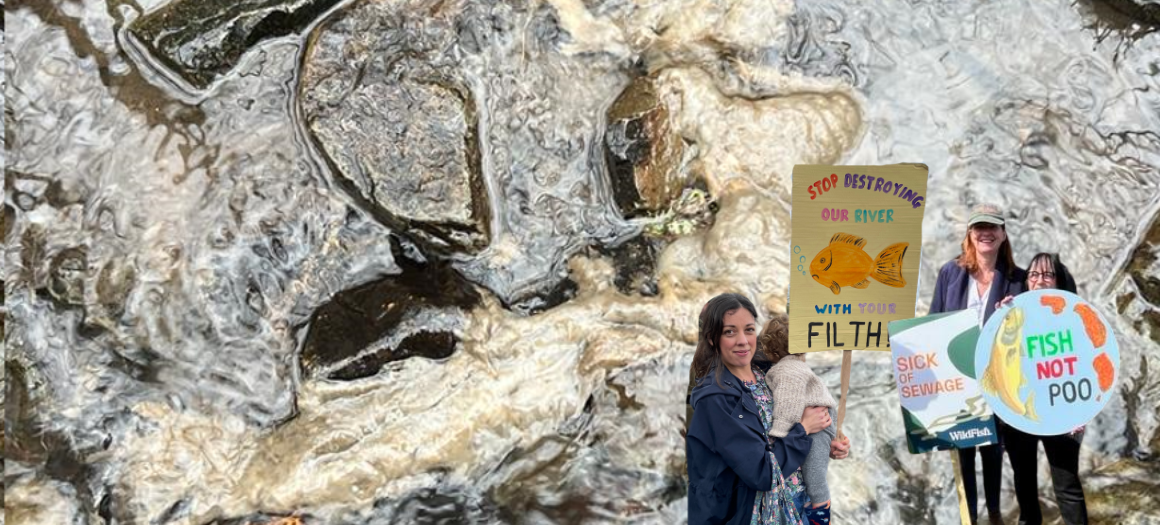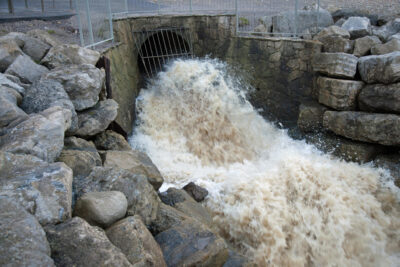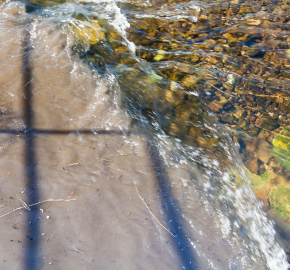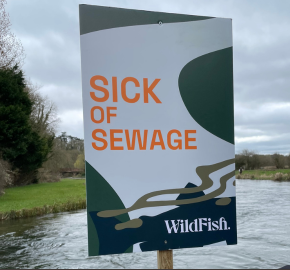WildFish set out actions that can be taken right now to reverse the decline of rivers

Today, the Water (Special Measures) Bill will have its second reading (the first real debate) in the House of Lords. The Bill is proposed by the government as a mechanism for cleaning up our failing water sector.
WildFish has been closely involved in recent legal cases and investigations into the functioning of the water industry and its regulation by Defra, Ofwat and the Environment Agency and believes that even before the Water (Special Measures) Bill becomes law, some changes would immediately – and without huge upheaval – add to the effective control of water company activities and start the process of recovery from the last 15 years.
We have written an open letter to Steve Reed, Secretary of State for the Environment, to set these out (linked here).
Action that should be taken right now
While WildFish will be tabling proposed amendments to the new Bill, there are many actions the government can take right now, without new legislation, and certainly before some long-winded review, to have a real and early impact on reducing pollution and planning for the future.
Under recent governments, there has been a complete lack of political support for taking a tough approach with the water companies and this has undoubtedly contributed to the awful sewage pollution which we now see in our rivers and the failure of water companies to ensure water will be available in drought without harming the environment.
The government can start to turn this around immediately by:
- Directing the Environment Agency to end water company Operator Self-Monitoring of all effluent discharges and take back control of all effluent monitoring from the water companies.
- Issuing a new, clear and unambiguous Strategic Policy Statement to Ofwat that points the way to a much tougher financial regulatory approach that prioritises investment in the environment.
- Directing the Agency to review water company environmental permits so that they meet the existing law on sewage pollution and drive investment.
- Directing the Agency to prosecute water companies aggressively under a new Sanctions and Enforcement Policy.
- Providing sufficient funding and a strong steer to both regulators to tackle the sewage pollution crisis in English rivers.
Amending the Bill
To ensure rapid progress in dealing with the crisis, WildFish has also tabled ‘technical’, common sense amendments to the Water (Special Measures) Bill into the House of Lords ahead of its Second Reading. The proposed amendments, drafted by WildFish lawyers, deal with:
- Ending the use of ‘soft touch’ enforcement undertakings to deal with water company pollution offences – a matter that WildFish has reported upon recently (see here).
- Requiring the Environment Agency to review environmental permits to apply the existing law on sewage treatment.
- Disapplying the Regulators Code and the statutory growth duty from both the Environment Agency and Ofwat when they regulate water companies.
- Amending the Environment Act 2021 to require the Environment Agency and not the water companies themselves, to monitor the in-river impact of sewage discharges.
- Bolstering transparency for the public, requiring publication of real-time sewage effluent data by all water companies under freedom of information law.
- Requiring the progressive installation of continuous volumetric monitoring of all water abstraction from rivers or groundwaters for public water supply, with real-time publication of data.
- Ensuring planning authorities take into account the availability of water resources and sewerage infrastructure when considering planning permission for new developments. Giving Ofwat the power to enforce against water companies if they don’t meet targets for alternative sources of water.
- Requiring the Environment Agency to modernise pollution permits, requiring modern continuous volumetric and qualitative monitoring of all sewage discharges, of whatever type, with real time publication of all data generated.
Our rivers and our fish do not have time for long-winded reviews. And, by and large, we don’t need them.
Nick Measham
Chief executive, WildFish
We’re calling on the government to pull all the levers it can right NOW – without passing any new laws – to protect wild fish and their waters from sewage pollution and over-abstraction of water. We need your help to make sure our message is heard.
Will you help drown Steve Reed’s inbox with our demands to STOP the destruction of our rivers right now?
I WANT TO HELP



So yesterday we became aware that Ofwat would require the water companies to return nearly £158m to customers for failing to reach various targets. Surely this is going in the wrong direction, what we need is for the water companies to invest this money, which has been allocated to them by Ofwat by raising water rates from their customer base, into much needed infrastructure? Does this not speak volumes about the lack of strategic direction by Ofwat? I think we need Ofwat to make a right angled change of direction, it needs to encourage water companies to invest in their infrastructure in a big way and the first step has to be to take the long term view, they all need to develop 20 to 25 year costed strategic plans. How else are they going to be able to fund this much needed investment? Their investors need assurances that they are going to see a return on their capital, not this up and down evaluation every 5 years followed by fines for not reaching targets. I also believe that dividends have to be capped on the basis that investors are in this for the long term and not for short term gains. The capital investment that needs to take place should result in infrastructure which has a long life, we should expect water mains to operate without failure for upwards of 50 years and water treatment plants to go for 20 to 30 years without a major revamp. Water companies also need a change of culture, they should not be driven by profit but by offering a solid reliable service to their customers which embraces the urgent need for consideration of the water environment which we all share.